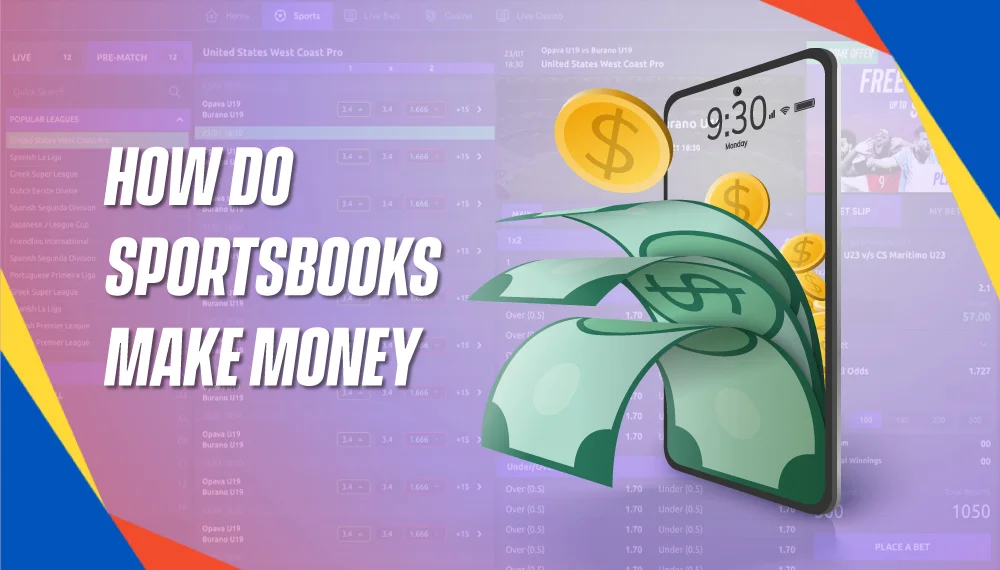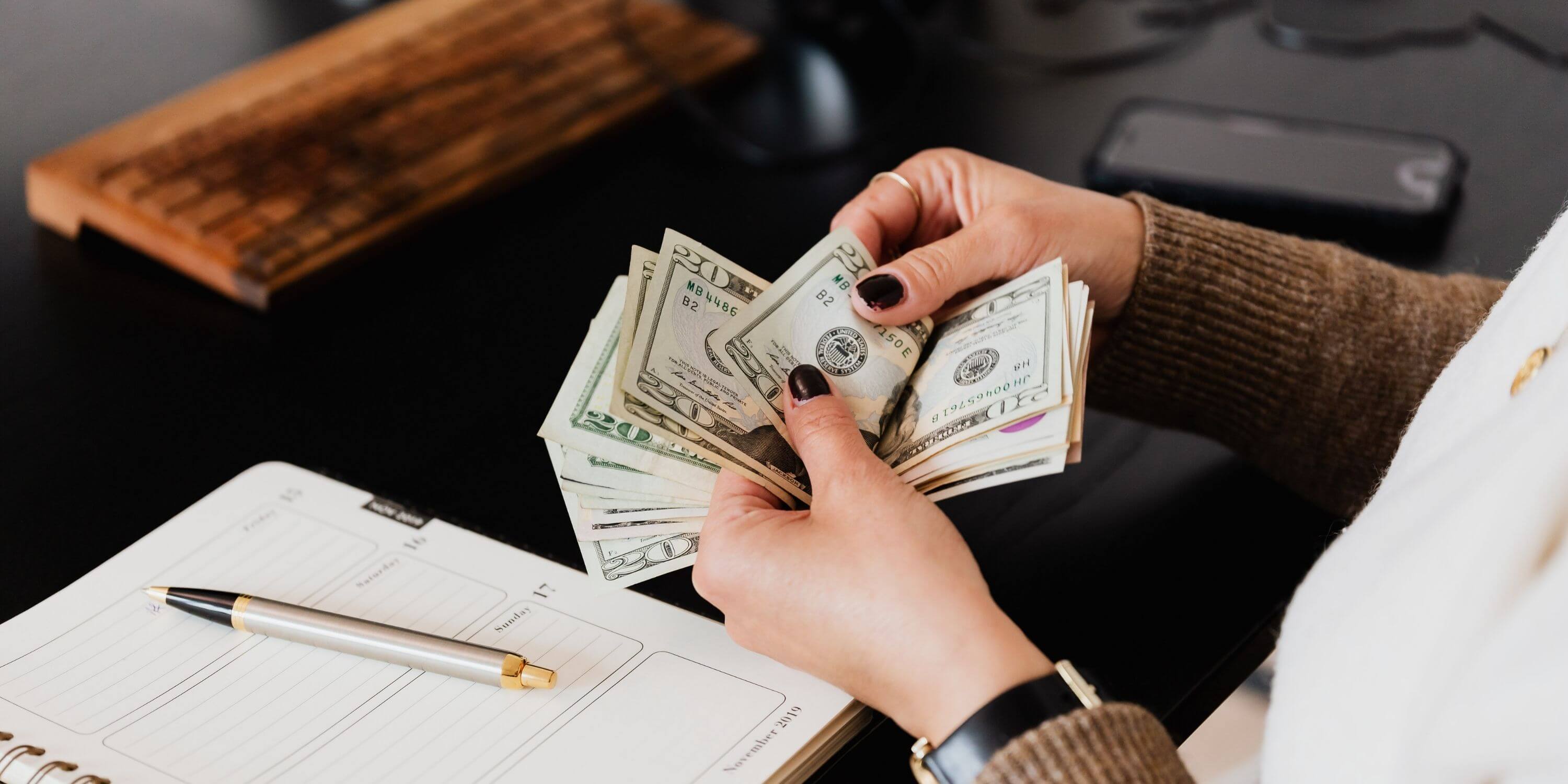How do sportsbooks make money

Finally, sportsbooks make money on the bets that they win. This is known as the "house edge." The house edge is the percentage of bets that the sportsbook wins. They accept money from multiple people on various outcomes and after the event is finished they pay out the winners. In return for this service, they get a fee. Sports betting payouts are determined by the how do sportsbooks make money attached to your bet and the amount of your wager. This potential payout is always listed on. Bettors use betting websites to place wagers. They use them to earn extra money. And for providing the services, betting sites charge them in the form of.
Make \u00A3250 with Matched Betting. Guaranteed.*
Do sportsbooks ever lose money? Can Online Bookmakers Lose Money? The simple answer to this question is “yes.” While you may have heard that the house always wins, that's a myth. If players didn't win sometimes, no one would ever go to sportsbooks. It's important to note that individual winners aren't going to lose you much money.
Can anyone open a sportsbook? To open a sportsbook, one must have a detailed business plan and access to sufficient funds, which will be influenced by the target market, licensing costs, and monetary guarantees required by the government. The expected bet volume and marketing strategies will affect the needed funds.
What percentage do sportsbooks take? Sportsbooks bake their cut into the odds on both sides of a bet, and that cut is generally 10%. For sportsbooks to maximize their cut, bets on any line are as close to 50-50 (percent) as possible. If one side of a bet with 80% of the money on it wins, the sportsbook loses.
Underdog bets often pay out more than money since the underdog is taken at a more significant disadvantage. There is a higher chance of an upset win, which means they will make more money. Bookmakers often undervalue underdogs, which presents profitable betting possibilities.Do sportsbooks make money on upsets? Betting on the underdog has its benefits
Who is the king of sportsbooks? The King of Sportsbooks BetMGM.
Does the NFL make money from sportsbooks? According to the American Gaming Association (AGA), the NFL collects an extra $2.3 billion per year in revenues due to the advent of widespread, legal sports gambling.
How do sportsbooks make a profit? Sportsbooks make money by charging something called a vig (vigorish). The vig can also be referred to as “juice” or “the hold.” Simply put, the vig is a charge or fee a sportsbook attaches to each bet they offer on their site.
Is it a bad idea to bet on sports? The problem with gambling is the subtle way it can take over your behavior and sensibility. This change can happen slowly or quite rapidly depending on a number of variables. However, the outcomes tend to be the same: damage to your relationships, bank accounts, credit rating, and overall mental and physical health.
How much do sportsbooks make off of parlays? The companies don't regularly release details on just how profitable parlays can be, but a Barron's analysis of data released by state gambling regulators shows that the companies' average “win margin”—the amount they keep from bets—is about 20% on those bets, versus 5% for a standard bet on a single outcome in ...
Does NFL get a cut of gambling? Miller says the NFL doesn't get a cut of the amount wagered with these companies. But the NFL and its television rights holders, which pay the NFL more than $13 billion a year to broadcast games, have seen a boon from advertising by the legal gaming industry.
Who funds sportsbooks? Sports betting companies make money by collecting a commission on losing bets, which is often called the vigorish. Often abbreviated to the vig, the vigorish is the cut or amount charged by a sportsbook for taking a bet, also known as juice in slang terms.
Do sportsbooks ever lose? The simple answer to this question is “yes.” While you may have heard that the house always wins, that's a myth. If players didn't win sometimes, no one would ever go to sportsbooks. It's important to note that individual winners aren't going to lose you much money.
How do sports betting companies make money?
Now, 30 states have legalized sportsbooks, and some allow these to be accessed online. A sportsbook is a place—either a website or a building—that accepts bets on sports. The most popular sports bets that bookmakers handle include:. Sportsbooks generally accept bets on either side of a sporting event.
They can do this because of the difference between what you wager and what you win. Sportsbooks are bookmakers, and they make money in the same way. For each bet, they will set a handicap which almost guarantees them a return in the long term.
A sportsbook makes money the same way a bookmaker does : by setting the odds so that it will generate a profit over the long term. Many states have only recently made sportsbooks legal. Some states still require gamblers to place bets in person, but in others, you can now access sportsbooks online. This was a fairly recent development.
In the United States, the Professional and Amateur Sports Protection Act of designated only Nevada, Oregon, Montana, and Delaware as states that could allow legal wagers on sports other than horse and greyhound racing or jai alai. As a result, a black market developed for the rest of the country whereby illegal operations of bookies provided opportunities for betting. Some bookies were involved in organized crime, while others operated independently, simply taking bets for a few friends, family members, or colleagues.
The Supreme Court ruled the act unconstitutional on May 14, , which allowed legal sports betting at states' discretion. The ruling created opportunities for sports betting in any states that legislate in favor of legalization. Since that ruling, many states have moved to legalize sports betting. Sportsbooks were limited to Nevada, Oregon, Montana, and Delaware until a Supreme Court decision gave states the ability to legalize them.
The Supreme Court decision permitted states to make sportsbooks legal, but states vary widely in their attitude toward sports gambling. As of January However, Utah residents are able to use Bovada. How do sportsbooks make money The Wire Act of outlawed interstate gambling, and so states that launch or plan to launch online sportsbooks are careful to check that bettors are within state lines. Generally, this means that they structure online sportsbooks as a fenced-in market with geolocation services.
This means that even though BetMGM is now active in New Jersey and New York, it must operate slightly differently in each state in order to comply with state law and verify the location of all of its customers. If you are looking for a sportsbook, you should consider many factors.
You should also choose a sportsbook that gives you good odds, of course. Your options will vary by state, of course, and new concepts in sports betting are opening up all the time. A sportsbook is the same thing as a bookmaker or bookie: It's a company or individual that accepts bets from individual sports bettors. Sportsbooks accept bets on either side of a sporting event.
They're able to afford to do this because of the difference between what a bettor has to wager and what a bettor wins. Sports betting companies make money by collecting a commission on losing bets, which is often called the vigorish. Often abbreviated to the vig, the vigorish is the cut or amount charged by a sportsbook for taking a bet, also known as juice in slang terms.
The sportsbook only collects the vig if the bettor loses the wager. A sportsbook is a company or individual who accepts bets from individual sports bettors. Most of these bets are on whether a team or individual is going to win a specific sporting event.  Sportsbooks were limited to just a few states in , but since then have been legalized in 38 states across the country.
Sportsbooks were limited to just a few states in , but since then have been legalized in 38 states across the country.
The Action Network. Boyd School of Law. Supreme Court of the United States. National Collegiate Athletic Assn. American Gaming Association. Play USA. Legal Sports Betting. However, there is one sure thing that rings true: human nature. Bettors have certain tendencies. For instance, on average, bettors like to take favorites. Sportsbooks can use these biases to shade their lines and increase their profit margins.
For the purposes of this table, we assumed all bets are the same size. As you can see in Table 1, above, there is a strong incentive for sportsbooks to shade lines, based on their experience with bettors and human nature. For example, we know that many bettors prefer to bet on favorites. The sportsbooks know that the betting public will lean to the popular teams and heavy favorites.
Betting against the public has proven to be a good contrarian investment for those who seek value in the sports marketplace. It is impossible to predict the future. Once inefficiencies are discovered, it is only a matter of time before the market corrects itself.
We do not guarantee our data is error-free. Sportsbook Profit Margins. Sportsbooks and Balancing Risk For point-spread sports, the odds are generally around or